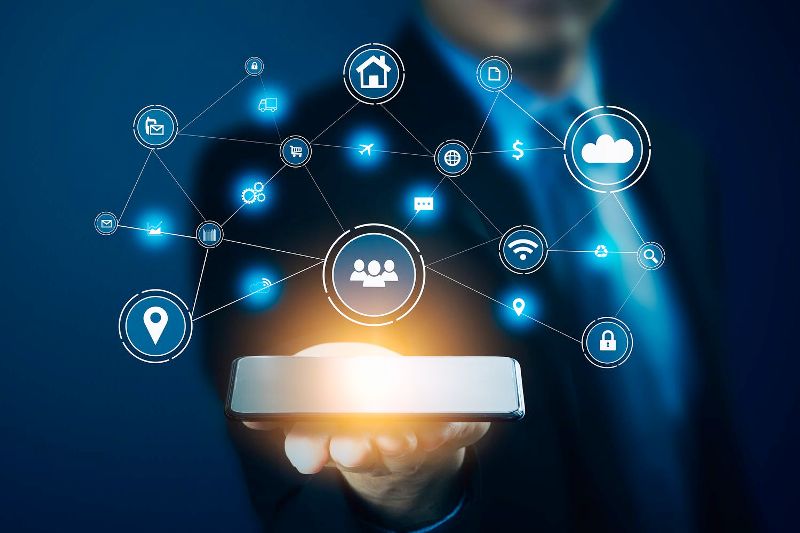In the digital age, software has become an integral part of our daily lives. From smartphones and computers to smart appliances and automobiles, software is everywhere. It shapes the way we work, communicate, and live. This article explores the importance of software in the modern world, shedding light on its significance and impact on various aspects of our lives, including how technologies like Postgres CDC (Change Data Capture) are shaping the data management landscape.
1. Efficiency and Productivity:
One of the most apparent benefits of software is its ability to enhance efficiency and productivity. In the business world, software tools are used to streamline operations, automate repetitive tasks, and analyze data. For example, customer relationship management (CRM) software helps businesses manage customer interactions and data effectively, while project management software keeps teams organized and on track. This efficiency translates to time and cost savings, making companies more competitive in today’s fast-paced global market.
2. Communication and Connectivity:
Software has revolutionized the way we communicate and connect. Social media platforms, email clients, and messaging apps have made it easier than ever to stay in touch with friends, family, and colleagues, regardless of geographical boundaries. Video conferencing software like Zoom and Microsoft Teams has become a staple for remote work and virtual meetings, allowing us to collaborate effectively and maintain relationships in a digital world.
3. Education and Learning:
The importance of software in education cannot be overstated. Educational institutions at all levels, from primary schools to universities, rely on software for various purposes. Learning management systems (LMS) facilitate online learning, while educational software provides interactive lessons, quizzes, and assignments. Students can access a wealth of knowledge and educational resources through e-books, online courses, and educational apps, making learning more engaging and accessible.
4. Healthcare and Medicine:
In the healthcare sector, software plays a crucial role in patient care, diagnosis, and treatment. Electronic health records (EHR) systems help healthcare providers access and manage patient information efficiently. Medical imaging software, such as MRI and CT scan applications, enables physicians to make accurate diagnoses. Additionally, telemedicine software allows patients to receive medical advice and consultations remotely, improving access to healthcare services.
5. Entertainment and Media:
Software has transformed the entertainment industry. Streaming services like Netflix, Spotify, and YouTube use sophisticated algorithms to recommend content tailored to individual preferences. Video game development relies heavily on software, creating immersive and interactive experiences for gamers. Editing software is used in film, music, and graphic design to produce high-quality content. The entertainment we consume is increasingly dependent on software for its creation and distribution.
6. Transportation and Smart Cities:
Software is at the core of modern transportation systems and smart city initiatives. Autonomous vehicles and transportation management software are changing the way we move from place to place. Traffic optimization algorithms help reduce congestion and improve the flow of traffic in urban areas. Smart cities use software to manage resources efficiently, monitor environmental conditions, and enhance public services.
7. Economic Growth and Innovation:
Software is a driver of economic growth and innovation. Startups and tech companies develop new software solutions, creating jobs and contributing to economic development. Software innovation can disrupt traditional industries, leading to new business models and opportunities. Technologies like artificial intelligence, blockchain, and virtual reality are examples of innovations with the potential to reshape various sectors and play a pivotal role in real-time data pipeline development.
8. Security and Privacy:
As the digital world grows, so do concerns about security and privacy. Software is essential for protecting sensitive data and maintaining online security. Antivirus software, firewalls, and encryption tools safeguard our devices and networks from cyber threats. Privacy-focused browsers and apps help users maintain control over their personal information. The importance of software in this context is critical for protecting individuals and organizations from cyberattacks and data breaches.
9. Environmental Impact:
The software can also have a positive impact on the environment. Energy management software helps businesses reduce their carbon footprint by optimizing energy consumption. Smart home automation software can control heating, cooling, and lighting, making households more energy-efficient. Environmental monitoring software assists in tracking and managing pollution levels and resource consumption, aiding in protecting the planet.
10. Adaptability and Flexibility:
Software is adaptable and can be updated or modified to meet changing needs and requirements. This adaptability is invaluable in a world where technology evolves rapidly. Software developers can release updates and patches to fix issues, improve performance, and add new features. This ensures that software remains relevant and effective over time, extending its lifespan and usefulness.
In conclusion, the importance of software in the modern world cannot be overstated. It permeates every facet of our lives, from work and education to entertainment and healthcare. It enhances efficiency, connectivity, and innovation while raising questions about security and privacy. As technology continues to advance, the role of software in shaping our future will only become more significant. Embracing the power of software and understanding its impact is essential for individuals, businesses, and society as a whole.













